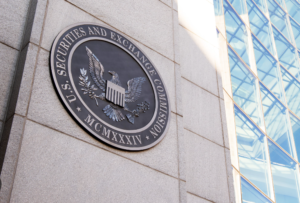$EURUSD $DAX $BTC
#Germany #Inflation #Economy #EuroZone #ECB #CentralBank #InterestRates #Markets #Investing #Euro #FinancialNews #GlobalEconomy
German inflation climbed to 2.9% in December, climbing past market analysts’ expectations. This data, released by Germany’s Federal Statistics Office, Destatis, reflects the persistent cost pressures in Europe’s largest economy. While inflation has been steadily easing from the historically high levels observed during the height of the energy crisis, December’s uptick suggests that underlying inflationary pressures remain stubborn in Germany. Core inflation, which excludes volatile components such as energy and food, is believed to have played a significant role in this increase. Economists view such developments with concern as they could impact broader Eurozone monetary policy decisions.
The German economy has been under close scrutiny amid broader concerns about inflation trends across the Eurozone. December’s 2.9% result exceeded market consensus forecasts that had anticipated a more moderate figure, further fueling discussion about whether the current policy trajectory by the European Central Bank (ECB) is sufficient to rein in inflation. Supply chain bottlenecks and elevated energy prices remain key contributors, although their intensity has eased in comparison to previous quarters. Policy-sensitive sectors such as housing and consumer goods may feel the brunt of intensified pricing dynamics, as consumers begin to recalibrate their spending in response to reduced purchasing power.
Financial markets in Europe were quick to respond to the inflation surprise. The benchmark DAX index in Germany saw muted performance as investors weighed the potential implications of sustained inflationary pressures for corporate earnings and consumer demand. The euro also showed volatility against major peers, with $EURUSD edging higher momentarily before stabilizing, reflecting the market’s anticipation of a potential shift in ECB rhetoric. Cryptocurrency markets, often viewed as a hedge against inflation, also garnered attention, with $BTC experiencing modest gains amidst rising inflationary concerns globally.
The rise in Germany’s inflation once again places the ECB in a challenging position. As inflation remains above the central bank’s target of 2%, policymakers may face sustained pressure to continue aggressive rate hikes to restore price stability within the Eurozone. However, such moves come with risks, particularly for fragile economies within the currency bloc that could see growth stifled by higher borrowing costs. The ECB’s balancing act between curbing inflation and promoting economic resilience will likely dominate discussions through early 2024. Investors and businesses, meanwhile, remain vigilant, closely monitoring inflation metrics and central bank statements for further clues on the evolving economic landscape.











Comments are closed.